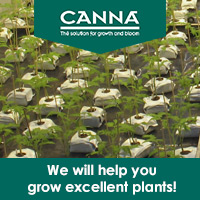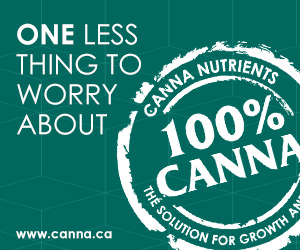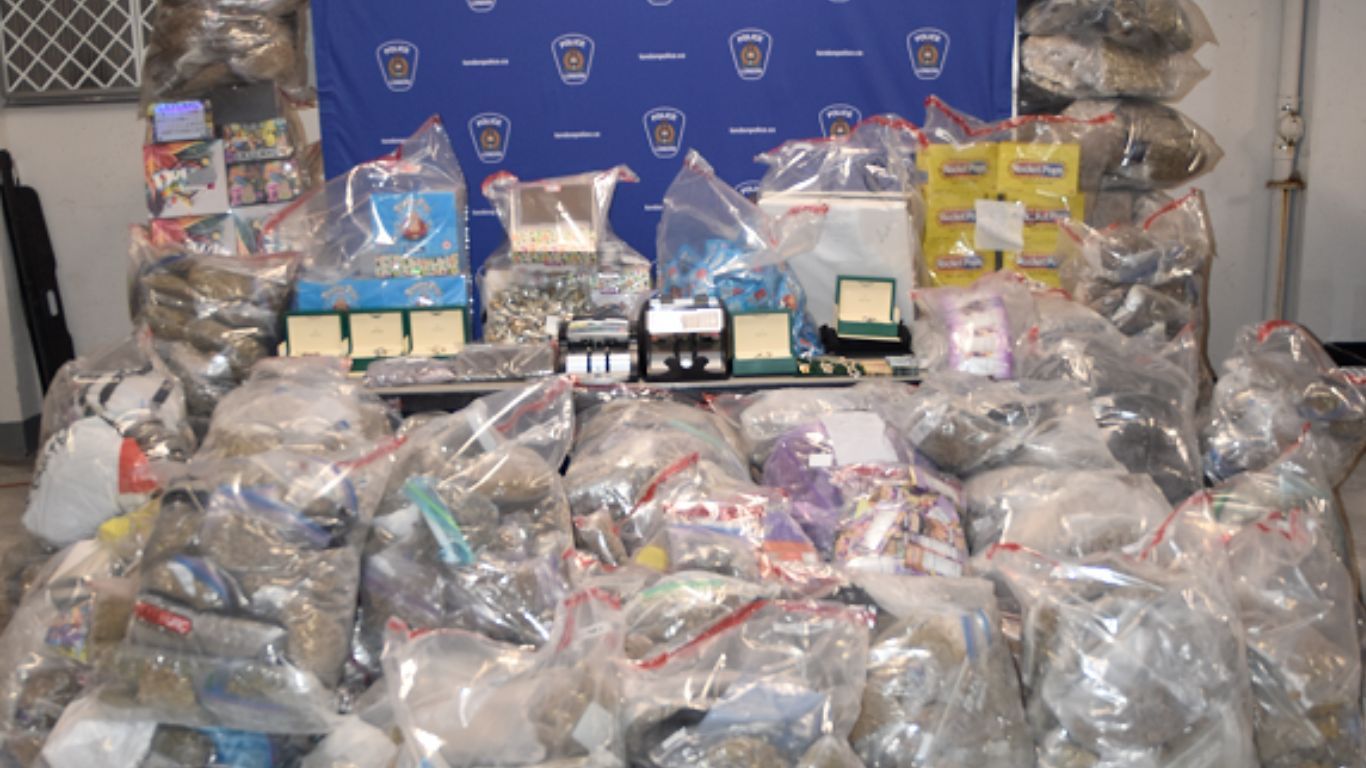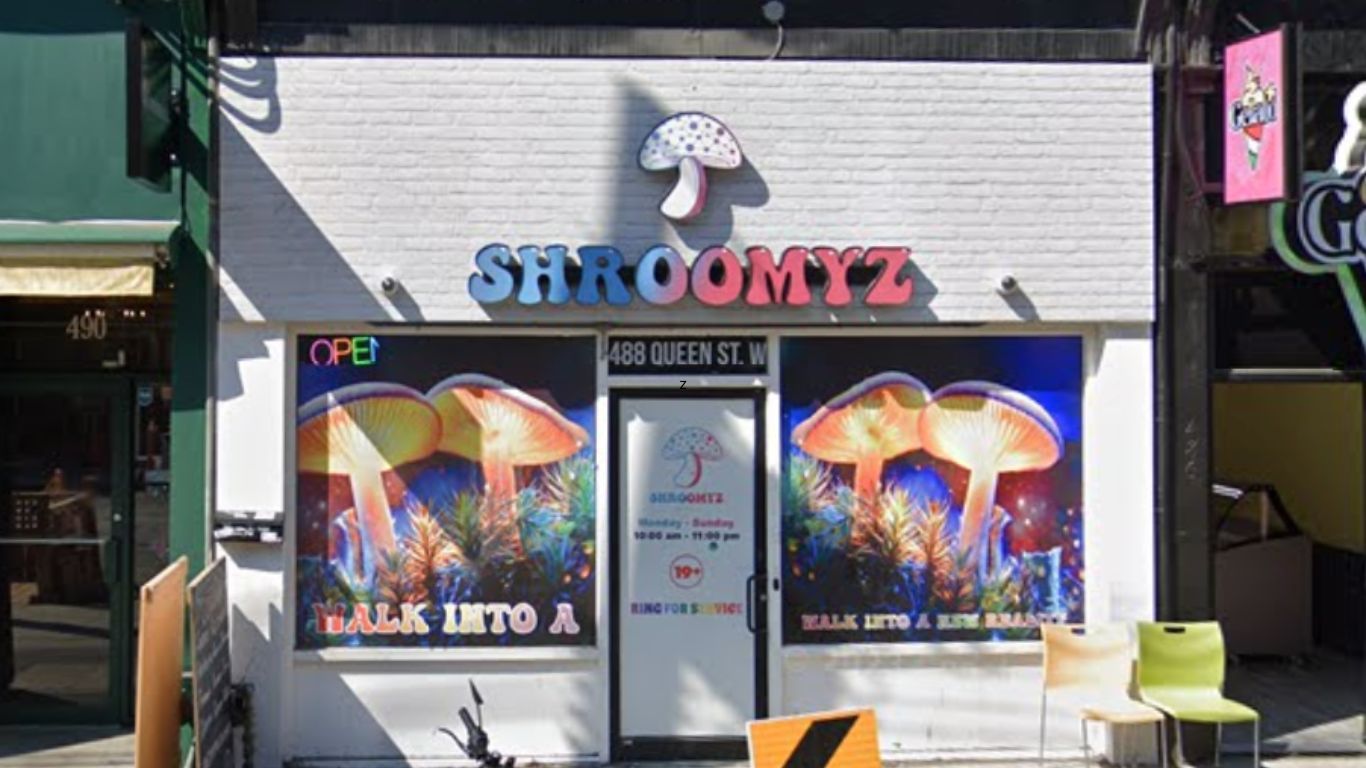
The Edmonton Police Service (EPS) says they have seized a large quantity of illegal cannabis plants and products, along with nearly a kilogram of psilocybin, and other property following a five-month investigation into an illicit online cannabis retailer.
The EPS Drug & Gang Enforcement Section (EDGE) began an investigation into the online retailer in March 2022. The investigation determined the online operation was not legal, and police believe it was using personal and/or designated medical production licences to supply their business, using multiple locations in and around Edmonton.
Police did not provide information on the name of the business or website.
On Tuesday, July 19, 2022, search warrants were executed at multiple residences in Edmonton and a warehouse in Onoway, Alberta. Multiple items were seized, including:
- 2,589 cannabis plants (“approximate street value of $2,600,000”)
- 134.2 kg of dried cannabis flower (“approximate street value of $779,000”)
- 947 grams of psilocybin (approximate street value of $12,000)
- 636 grams of cannabis concentrate products (approximate street value of $14,000)
- $15,500 in Canadian cash
- Cannabis cultivation equipment, including specialized lighting equipment valued at approximately $177,000
- 2022 Tesla Model 3
- 2020 Tesla Model 3
- 2016 Dodge Ram
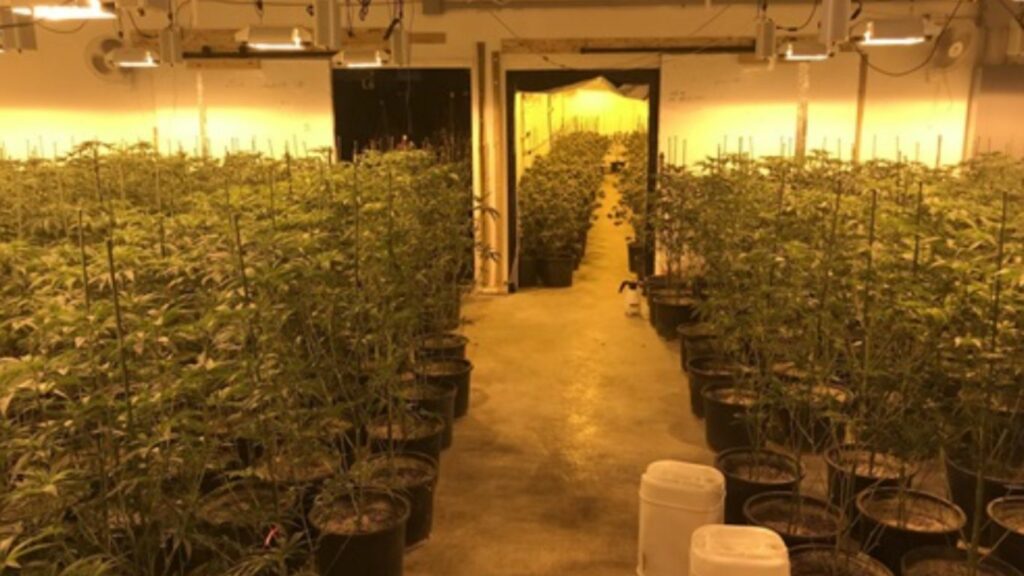
Law enforcement notes that the investigation is ongoing, and charges are pending against multiple individuals.
“The funds derived from the illegal production and sale of cannabis results in the proceeds generated being injected into the legitimate economy,” says Const. Dan Melnyk with EDGE. “This can unfortunately undermine the integrity of the financial system.”
Const Melnyk also says such business harms the legal industry.
“Also, the illegal production and sale of cannabis causes the regulated cannabis production sites and licensed cannabis retailers to incur a significant loss of revenue. Overall, these activities jeopardise the legitimate industry’s existence.”
Health Canada’s medical cannabis access program allows people to grow their own cannabis or designate someone to do so for them, with authorization from a qualified medical professional.
Many politicians and members of law enforcement have been calling for the closure of “loopholes” in this program that lead to individuals using the system for for-profit illicit production, distribution, and sale.
Diane Finley, a Conservative representing the Ontario riding of Haldimand-Norfolk, presented petition e-2920 in the House in 2021, with more than 1,000 signatures.
“These petitioners are worried about the growing problem of the misuse and abuse of the Liberal government’s current medical marijuana rules and the loopholes that exist in the designated grower program,” said Finley in the House of Commons at the time. “The results are an infiltration of our communities by organized crime. There are also severe impacts on the quality of life for nearby residents.”
Recent figures from Health Canada show that in the most recent reporting period from March to September 2021, the number of individuals registered with Health Canada for personal and designated cultivation of cannabis for their own medical purposes increased 19% from 39,525 to 47,147.
There were 25,945 active personal/designated production registrations in October 2018, peaking and 47,147 as of September 2021.
The majority of the increase in registrations for personal/designated production is from three provinces; Ontario with an increase of 2,287 registrations, Quebec with an increase of 2,155, and British Columbia with an increase of 2,028, all compared to March 2021.
Although the average daily prescribed amount of cannabis under the medical cannabis program is about 2 grams, the average daily amount authorized by health care practitioners for individuals who are registered with Health Canada for personal or designated production was 45.3 grams per day.
Health Canada argues that this discrepancy can, in some cases, undermine the integrity of the system that many patients and health care practitioners rely on for access to medical cannabis.
While there were 7,464 healthcare practitioners associated with registrations made in the past year with federally licensed sellers, only 1,963 healthcare practitioners (hcp’s) were associated with active personal/designated production registrations.
Of these hcp’s associated with personal or designated production registrations, 424 authorized amounts equal to or above 25 grams per day, and 35 authorized amounts equal to or above 100 grams per day.
A Health Canada compliance report from 2020 showed only nine such designated or personal production sites were inspected between April 1, 2018, and March 31, 2019. From April 1, 2019 and March 31, 2020, there were 82 inspections associated with 82 of these types of registrations.
A more recent compliance report released this year covering April 1, 2020 to March 31, 2021 showed that such inspections occurred in that time period due to covid restrictions. On-site planned inspections were resumed in the fiscal year 2021-22 and are therefore not covered in the most recent reporting period.


